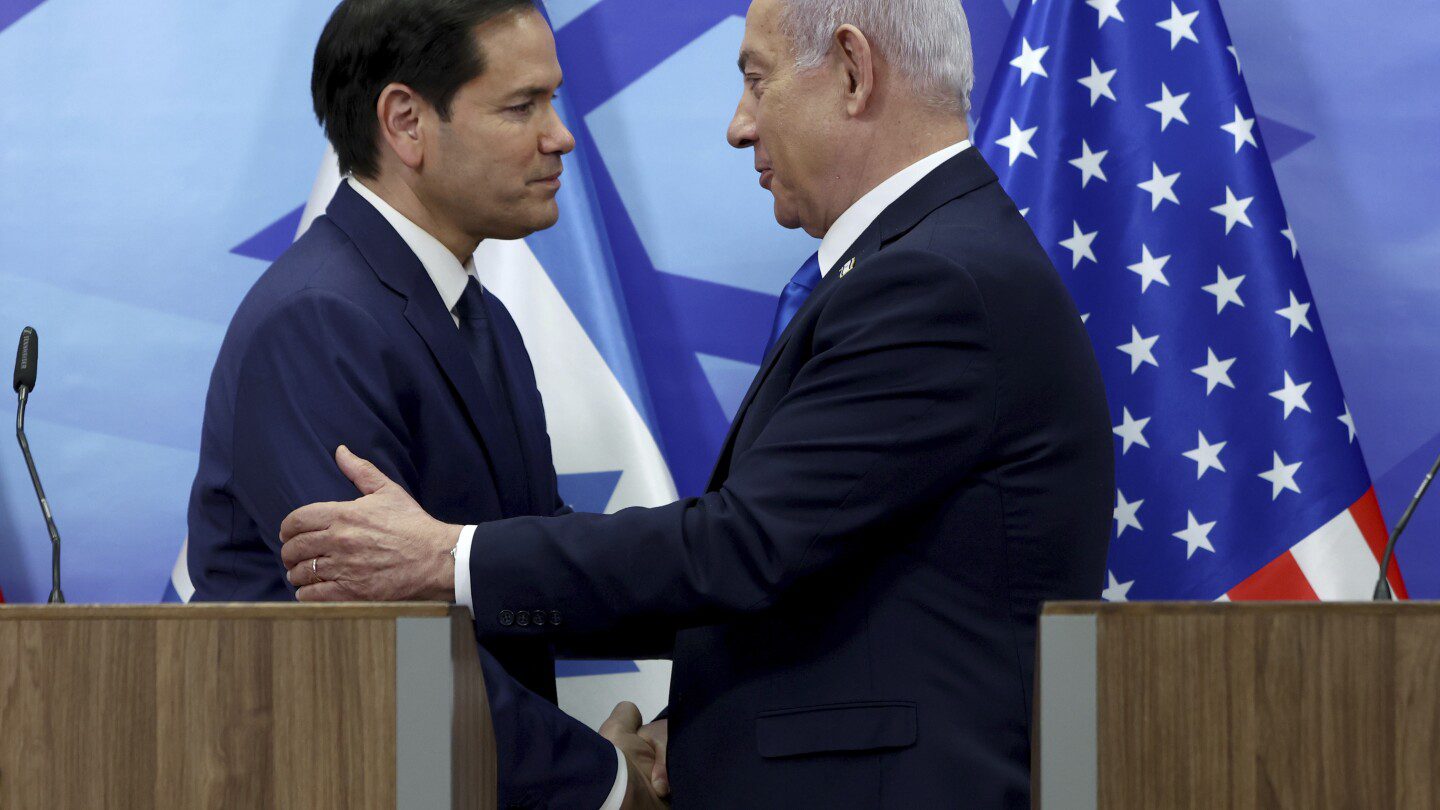
US Secretary of State Marco Rubio Reaffirms Support for Israel’s Military Objectives
JERUSALEM (AP) — During a press conference on Sunday, U.S. Secretary of State Marco Rubio voiced strong support for Israel’s military goals in the Gaza Strip, asserting that Hamas must be “completely eliminated.” His remarks cast further doubt on the stability of the already precarious ceasefire in the region.
Rubio’s visit to Israel marked the beginning of a regional tour, during which he met with Prime Minister Benjamin Netanyahu. His discussions occurred amid anticipated resistance from Arab leaders regarding President Donald Trump’s controversial proposal for relocating the Palestinian population in Gaza and developing the area under U.S. oversight.
Netanyahu welcomed the proposal, stating that he and Trump share a "unified vision" for Gaza’s future. He echoed Trump’s sentiments, warning that failing to secure the release of hostages taken during Hamas’s attacks on October 7, 2023, would lead to catastrophic consequences.
These statements emerge just weeks before the initial phase of the ceasefire is set to conclude. A subsequent phase, involving the exchange of hostages and a negotiated truce, remains in the works but is yet to be finalized.
Rubio emphasized that as long as Hamas retains its military and governing capabilities, achieving lasting peace will be unattainable. He stated, “Hamas cannot continue as a functioning military force or as a governing entity. Its eradication is essential to pave the way for peace.” However, such rhetoric could undermine any ongoing negotiations with Hamas, which, despite significant losses, continues to maintain its grip on Gaza.
In a related development, the Israeli military executed airstrikes early on Sunday against individuals near its forces in southern Gaza. According to the Hamas-controlled Interior Ministry, these strikes resulted in the deaths of three policemen who were facilitating humanitarian aid efforts near the Israeli border.
Hamas condemned the airstrikes, claiming they represented a serious breach of the ceasefire agreement and accusing Netanyahu of attempting to undermine the fragile peace.
Potential Resumption of Conflict Threatens Hostages
A return to military action could pose severe risks to the remaining hostages and might not effectively dismantle Hamas, which has demonstrated resilience after prolonged assaults and quickly reinstated control over Gaza once the ceasefire was enacted last month.
Netanyahu has indicated a willingness to resume hostilities after the initial phase of negotiations and has offered Hamas leaders the opportunity for exile should they surrender. However, Hamas has firmly rejected this suggestion.
Additionally, Netanyahu has not approved the entry of essential construction materials and mobile homes into Gaza, which is stipulated in the ceasefire agreement. Last week, Hamas warned that it might delay the hostage release over this issue, raising fears that the ceasefire could collapse, although it managed to facilitate the release of three hostages following assurances from Arab intermediaries.
An Israeli representative stated that the matter will be addressed shortly, and coordination with the United States is ongoing.
In another sign of the close partnership between Israel and the U.S., Israel’s Defense Ministry confirmed the receipt of a shipment of MK-84 munitions from the United States, following a previous pause in shipments due to concerns over civilian casualties in Gaza.
Rubio’s Regional Diplomacy Efforts
Rubio is scheduled to continue his trip, visiting the United Arab Emirates and Saudi Arabia, which have both expressed opposition to the mass displacement of Palestinians and will play pivotal roles in any potential regional response. The UAE was instrumental in the 2020 Abraham Accords, which normalized relations between several Arab nations and Israel under Trump’s administration.
The Secretary of State is not visiting Egypt or Jordan, which maintain peace treaties with Israel and have refused to accept any influx of Palestinian refugees. This decision comes as Trump has hinted at reducing U.S. aid to these nations if they do not comply with U.S. demands.
Rubio also bypasses Qatar, a significant mediator in past ceasefire discussions with Hamas.
While Trump has claimed credit for brokered ceasefires during his presidency, he has recently suggested Israel should take military action again if the hostages are not released swiftly.
Conclusion
For the latest updates on the ongoing conflict and diplomatic developments in the region, follow AP’s extensive coverage at AP News – Israel-Hamas War.









